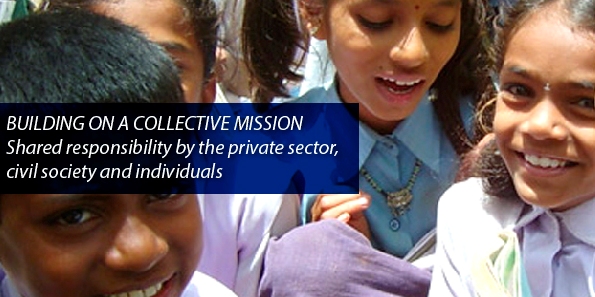As part of the ‘Conversations around CSR’ series, we have here Indira Varadarajan, executive director, SNSF Foundation.
Keeping in view the areas mandated as part of CSR, how does it impact your organisation’s focus and investment?
One great thing about our funding corporate is that despite the highs and lows in their business, the annual commitment has not been going ding-dong. However, on your point about keeping in view the areas mandated as part of CSR and how they impact your organisation’s focus and investment, I must admit that focus was really driven not by a clear programmatic policy but by a general charitable thought of ‘giving back to society’ and the belief that ‘business is 90 per cent people’. We are now revisiting the responsibility of trustees in clarifying the scope of our programmes in policy terms and composition of trustees and cascading the responsibility down to a policy directive committee, the executive body and field operations.
What will be the impact, if any, on the NGOs or social enterprises (you engage with) and the communities/causes they support?
If we go through with the reform process by way of restructuring, we will be clear about when we want to be direct implementers, when we choose to be co-implementers, and when we will outright outsource the translation of policy directives into ground realities in operational terms.
Are the projects currently implemented by your organisation ‘sustainable’? To the extent possible, do elaborate upon the complexities.
All of our projects have been conceived and designed to be strategic – that is, long-term, addressing national development priorities and national concerns, and with an eye to developing institutional mechanisms so that the foundational backdrop, the research supporting the conceptual framework/project design for adaptation for different geographies and scaling up are clarified as a detailed and complete (programme) product specification.

Please share the journey of one project implemented by your organisation, with focus on its impact at the grassroots.
I will share tw first, the TEAM project with Eureka, Quest and Sanskaar as its sub-projects, and second, the Life Enrichment project.TEAM, an acronym for Town Enrichment Action Movement, was designed to demonstrate a sustainable model of mobilising civil society participation in identifying and mainstreaming out-of-school children into the formal school system. The project received the highest British High Commission funding of Rs 75 lakh for 3 years (2000″03) under its Small Grants Scheme for NGOs. The project deliverable spelt out was mainstreaming of 2,000 out-of-school children in 3 years. Our strategy of sensitising civil society partners, parents of the out-of-school children, media, politicians, law-enforcing agencies, local administration, resident welfare societies, shops and establishments, factories, corporate, management of formal schools and students of formal schools resulted in whipping up multiple levels of communication. This led to 6,500 children being mainstreamed (against the project target of 2,000) in the three-year target period. Details of the project can be found here: http://www.snsf.org/projects/education.aspx
The Life Enrichment project was designed as an inclusive workplace intervention programme for transforming a fiercely ‘profit-first culture’ into a ‘life-first culture’.
The philosophical premise on which the project was designed was that life was more valuable than all treasures on earth and hence, according respect to the sanctity and dignity of life must be given the highest priority.
One insightful thought, experience or learning that you will like to share with your counterparts as well as other individuals in the causes domain.
The fact that getting on-board all constituent bodies and groups of individuals from civil society is possible when the focus is ‘strengthening the ecosystem’, which comprises media, industrialists, corporates, managements of schools, resident welfare societies, formal school children, law-enforcing agencies and NGOs. The need is to get the entire ecosystem together and focus on the common cause of guaranteeing the right to education to children.
Also read:
